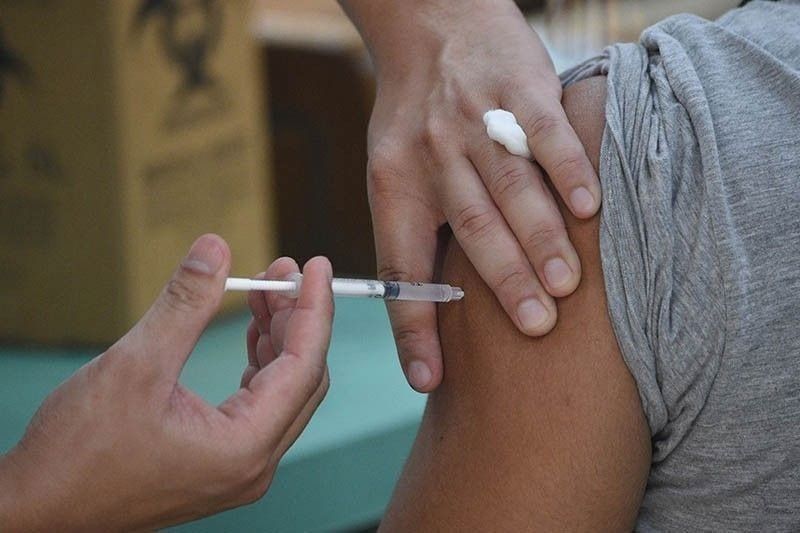Bivalent vaccines available in Philippines by December – DOH

MANILA, Philippines — Bivalent vaccines against COVID-19 are expected to become available in the country by December, according to Department of Health officer-in-charge Maria Rosario Vergeire.
“We have been negotiating with the manufacturers of these bivalent vaccines for over a month already and we are set to sign our term sheets with Moderna,” Vergeire said in an interview with “The Chiefs” on Cignal TV’s One News.
“They (Moderna) have committed with us to make it available here and they said they can produce and they can deliver as early as end of November,” she said.
“We have to go through our processes. There are still regulatory processes that we need to undertake, like authorization from the Food and Drug Administration, plus we need the Health Technology Assessment Council’s positive recommendation based on law,” she stressed.
“We have the funds and we are ready to procure and our estimate is that if we will be able to secure and complete the regulatory clearances, by December we have the bivalent vaccines already,” Vergeire said.
“It’s going to be given for free to our eligible population. Now as to the population that we will provide, we still need to see how much we can procure, how much can be delivered so that we can assess and determine the prioritization that will be done,” she told The Chiefs.
Vergeire said the DOH has conducted a survey to verify assumptions, given that people now aren’t availing themselves of booster shots and would rather wait for the bivalent vaccines.
“Based on the result of our survey, it turned out that 97 percent of those who already received two boosters would also want to receive the bivalent vaccine. Meanwhile, 96 percent of those who had their first booster shots would also want to receive the bivalent vaccine,” said Vergeire.
The DOH also noted that 67 percent of those with the first two doses or are considered fully vaccinated, are willing to receive the bivalent vaccine while 40 percent of those not vaccinated are willing to get bivalent vaccine.
“I would just like to inform everybody that while we wait for these bivalent vaccines to arrive, it would really be advisable for people to receive their booster shots right now, especially that we are continuing to ease our restrictions. These are the protections you need for yourself and your family,” she added.
Bivalent vaccines include a component of the original virus strain and a component of the Omicron variant to provide better protection against COVID-19 of the highly transmissible Omicron variant.
Meanwhile, World Health Organization (WHO) member-states including the Philippines are now crafting a “pandemic treaty” to guide and unite countries in times of health crisis, Vergeire said yesterday.
She told a press briefing that the forging of a pandemic treaty was one of the highlights of discussions at the 73rd WHO Western Pacific Regional Committee Meeting in Manila, which concluded yesterday. The forum began on Oct. 24.
“Because of the current pandemic, all of the countries agreed that this treaty should be there. We all need to be prepared. We need to help each other when we find ourselves in this kind of situation,” Vergeire said.
She stressed that there is a need for exchange of information during health crises, especially pandemic.
Vergeire said WHO director general Dr. Tedros Ghebreyesus has emphasized the need for the Philippines to support a pandemic treaty. The WHO official attended the Manila meeting.
“Of course, we are supporting this and we have provided already our recommendations as additional to the resolution that was agreed upon, that is moving forward, there should be interventions among all Western Pacific regional countries,” she added.
“So we as a group from the Western Pacific, we also want to give our strong recommendations. This pandemic treaty is not only for this pandemic but should also apply to any health crisis that we may possibly experience,” she pointed out.
“When the pandemic started, countries are not really united. Information was very scarce then. There was no exchange of information. It is only when the vaccines arrived that we realized that partnerships or coordination between countries is important so that those without vaccine supply would be provided access,” Vergeire explained.
The health official also said that during a meeting with President Marcos, Tedros explained that “though there are these subvariants, and there is still an increase in cases in different areas globally, it’s totally different right now.”
“Two years ago when we started with the pandemic, we didn’t have any tools to address the pandemic but now, even if the cases are increasing, we have our antivirals, we have our vaccines, people have learned already towards practicing minimum public health standards. All countries are now looking forward and what we need is to preserve our health care system,” Vergeire quoted Tedros as saying.
- Latest
- Trending


























